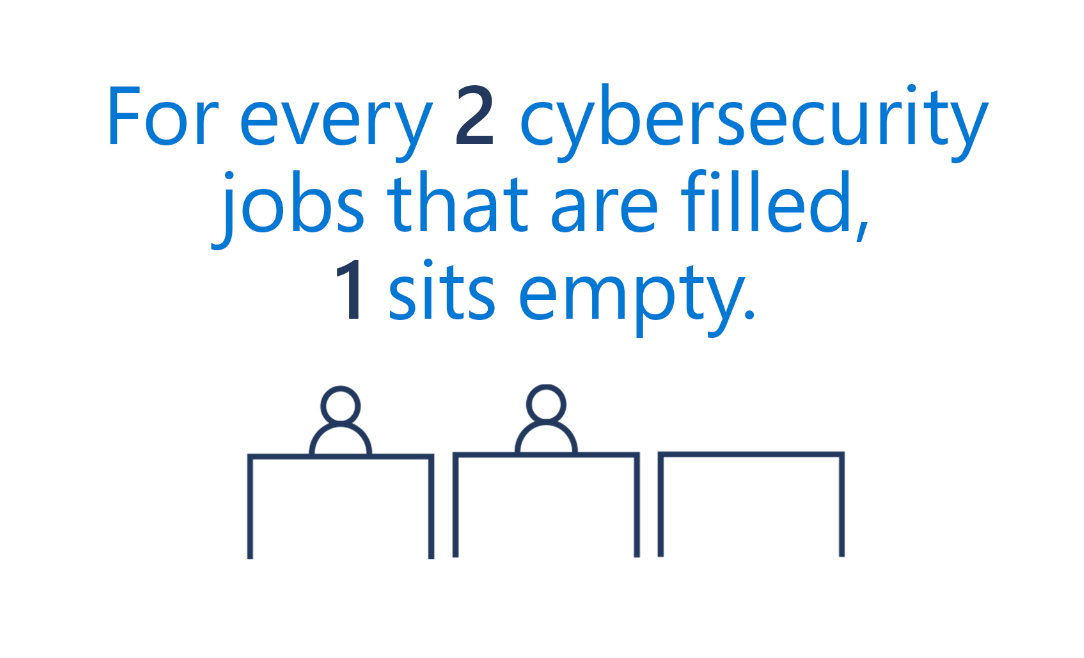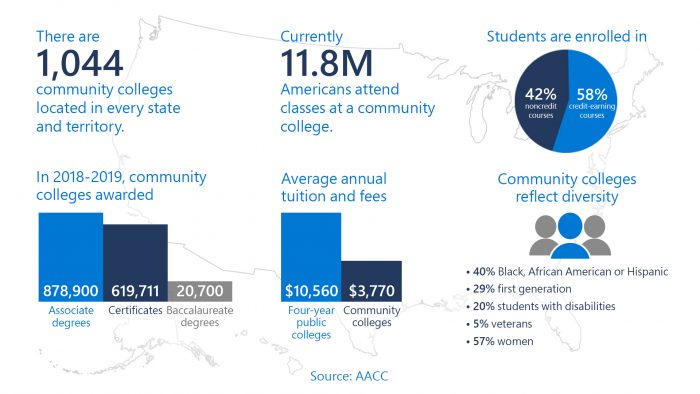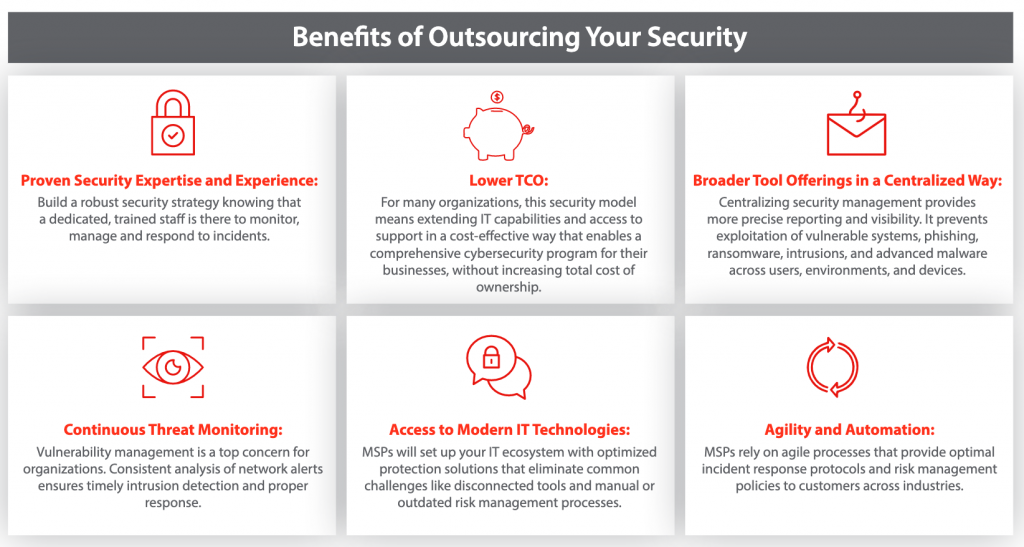Outsourcing Cybersecurity
In their Q1 2022 IT Priorities and Benchmarks Survey, Gartner Peer Insights revealed that 67% of IT decision-makers list talent shortages as their largest business challenge. This difficulty in hiring and retaining talent is followed closely by 47% of respondents listing a talent gap or insufficient skills within teams as the second largest challenge. ISACA’s State of Cybersecurity 2022 report also highlighted staffing challenges in the industry. Within the audience surveyed, 63% of respondents listed unfilled cybersecurity positions as a top challenge.
The global cyber security market is valued at $155.83 billion in 2022, according to Fortune Business Insights. And it is expected to grow to $376.32 billion by 2029, exhibiting a compound annual growth rate of 13.4%. The current cybersecurity skills gap is so severe that last year tech giants Microsoft, Google, and IBM each announced national campaigns along with billions in commitments toward expanding educational opportunities. Microsoft alone committed $20 billion over five years to advance security solutions and protect customers, as well as $150 million to help US government agencies upgrade protections, and expand cybersecurity training partnerships. Microsoft’s goal in the campaign is to recruit 250,000 people into the cybersecurity workforce by 2025, filling half of the country’s workforce shortage. At the time of these commitments, there were 464,200 open jobs in the United States requiring cybersecurity skills — which accounts for 6% of all open jobs in the country.

Google similarly committed $10 billion over the next five years to strengthen cybersecurity, including expanding zero-trust programs, helping secure the software supply chain, and enhancing open-source security. They also pledged, through the Google Career Certificate program, to train 100,000 Americans in fields like IT Support and Data Analytics, learning in-demand skills including data privacy and security.

These hiring challenges have led many businesses toward outsourcing their cybersecurity needs. Working with a managed service provider, to enhance security brings in proven cybersecurity expertise and access to dedicated, trained staff. Many organizations are choosing to outsource their security teams because it’s the most cost-effective way to build a robust security strategy with consistent threat monitoring and extended IT capabilities without increasing the total cost of ownership. The key considerations for those considering outsourcing security are:
- Proven Security Experience and Expertise
- Lower TCO
- Broader Tool Offerings
- Continuous Threat Monitoring
- Access to Modern IT Technologies
- Agility and Automation

Choosing an outsourced security model means you’re delegating some or all IT/security management. Defining the internal roles and responsibilities that will manage the relationship with the MSP, will help to create a strong partnership. Having a clear understanding of how involved you want to be in security decisions will create a good balance between control and flexibility for both parties. There can also be data concerns when partnering with outside firms. Granting access to sensitive data comes with risks so understanding your MSP’s procedures and knowing where your data is located is critical to reducing potential incidents.
According to Statista, the average cost of a data breach worldwide was $4.2 million in 2021. It’s no secret that today’s hybrid work model requires a security approach that provides more intelligent protection for environments, users, and devices. In part, this is driven by the rapid increase in Cloud and overall technology adoption highly influenced by remote work. Growing your business in a digital world comes with different IT challenges compared to on-premises security. That’s why the demand for managed services is increasing significantly. Investing in cybersecurity with the support of a managed service provider (MSP) is the proactive choice for many organizations because it results in a more cost-effective IT strategy that impacts scalability and provides the invaluable advantage that is continued, trusted IT support.



